“Sharing Experiences When Studying Abroad in Vietnam 2024” offers insights into academic, cultural, and personal growth for international students. From immersive festivals and affordable living to language learning and professional networking, this guide highlights unique experiences and challenges, helping students embrace Vietnam’s vibrant culture while gaining valuable skills and perspectives.
1. Diverse Academic Programs-Studying Abroad in Vietnam
- Range of Subjects: Vietnam’s universities offer a growing variety of programs. Students can explore unique areas like Southeast Asian studies, tropical agriculture, and Vietnamese language and culture. Some students find that Vietnam provides a less competitive and more community-oriented academic setting, which can be refreshing.
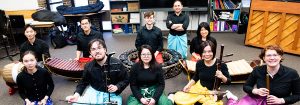
- International Partnerships: Many Vietnamese universities partner with institutions in the U.S., Europe, Australia, and Asia, allowing students access to joint programs, exchange opportunities, and collaborative research.
2. Cultural Festivals and Holidays-Studying Abroad in Vietnam
- Celebrations: Vietnam has a rich calendar of cultural festivals that international students can experience, from Tet (Lunar New Year) to the Mid-Autumn Festival. These celebrations offer students a unique perspective on Vietnamese traditions and family life, and it’s common for local friends to invite international students to celebrate with their families.
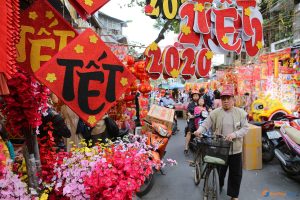
>>>https://fopa.vn/experience-mid-autumn-festival-in-vietnam-2024/
- University Events: Universities also host cultural exchange events where students can share their own traditions. Participating in or organizing these events can be a rewarding way to build friendships and deepen mutual understanding.
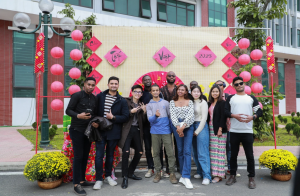
3. Developing Independence and Adaptability
- Daily Life Skills: From mastering the art of crossing busy streets to bargaining in markets, students quickly learn essential life skills. The vibrant street life requires adaptability, and students often find they become more resilient and resourceful.
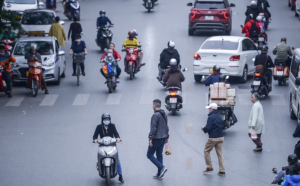
- Health and Wellness: Vietnam has both local and international healthcare options, though it’s important to research the facilities and plan accordingly. Many universities have basic health services, and some cities have clinics catering to foreigners.
4. Gastronomy and Culinary Learning-Studying Abroad in Vietnam
- Vietnamese Cuisine: Food is a central part of Vietnamese culture, and students can dive into learning about regional dishes, from Hanoi’s phở to Hoi An’s cao lầu. Students find it a fun challenge to explore the diversity in flavors, and some even take cooking classes to learn how to recreate these dishes.
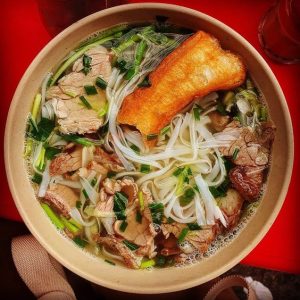
- Social Dining: Eating is often a communal experience in Vietnam, and it’s typical for friends to gather over shared meals. Street food stalls and local eateries offer endless dining adventures, and students often find that dining out is very affordable.
Money-Saving Tips for Affordable Meals
- Look for end-of-day sales to get fresh, delicious items at the best prices.
- Buy food in moderate quantities and share with roommates to reduce meal expenses—avoid over-purchasing.
- Stock up on dry goods like soap, tissues, and household items for the year. This way, you can easily clear your things at the end of the year and save money.
- Limit eating out and save city dining for weekends. Cooking at home will improve your skills (you’ll be a better cook within 6 months!).
- Avoid seasonal sales traps for clothes. Buy only what you need and resist the urge to buy excess just because it’s cheap.
- Use buses instead of taxis—taxi fares can be very expensive. Walking more is also a healthy and budget-friendly option.
5. Travel and Exploration-Studying Abroad in Vietnam
- Diverse Landscapes: Vietnam’s geography ranges from mountains and forests in the north to beaches and islands in the south. Many students take advantage of this variety by traveling around the country during holidays, gaining a deeper appreciation for Vietnam’s natural beauty and its ethnic diversity.
>>>https://fopa.vn/top-10-rated-tourist-attractions-vietnam/
- Easy Access to Southeast Asia: Vietnam’s central location in Asia makes it easy to explore neighboring countries like Thailand, Cambodia, and Malaysia. Students who want to see more of the region can take affordable short trips, enriching their study abroad experience.
6. Language and Communication Challenges
- Learning Vietnamese Tones: Vietnamese is a tonal language, which can be challenging for many foreigners. Some students find that, despite the difficulty, learning a few basic phrases and tones significantly improves their interactions and allows them to connect with locals on a deeper level.
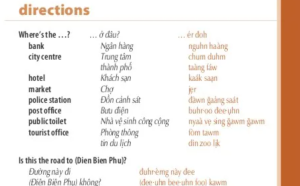
- Navigating Multilingualism: Some students are pleasantly surprised to find that in major cities, younger generations and academic circles are fairly multilingual, with English, Chinese, and Korean becoming more common in urban centers.
7. Strong Sense of Community and Belonging
- Student Organizations: Many universities have clubs or organizations for international students, which provide support, guidance, and organized social events. Through these, students can connect with others facing similar challenges and form lifelong friendships.
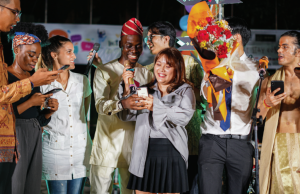
- Host Family Programs: Some programs offer the option to stay with a host family, providing a firsthand look at Vietnamese family life and culture. This experience can be invaluable for students looking for a more immersive experience.
8. Overcoming Homesickness and Building Resilience
- Coping with Homesickness: Living far from home can be challenging, and students may experience culture shock and homesickness. However, many students find that support networks, both among international peers and with local friends, help them adjust and embrace the experience fully.
- Personal Resilience: Facing these challenges often builds resilience, independence, and self-confidence. Many students say that their time in Vietnam taught them to handle difficult situations and prepared them for future international experiences.
Studying abroad in Vietnam is more than just academics; it’s a journey of self-discovery, cultural exchange, and personal growth. This experience often leaves a lasting impact, equipping students with valuable life skills and an appreciation for the diversity and vibrancy of Vietnam.
![]() Visa FOPA Company
Visa FOPA Company
📞+84 906 044 975 (Mr. Do)


